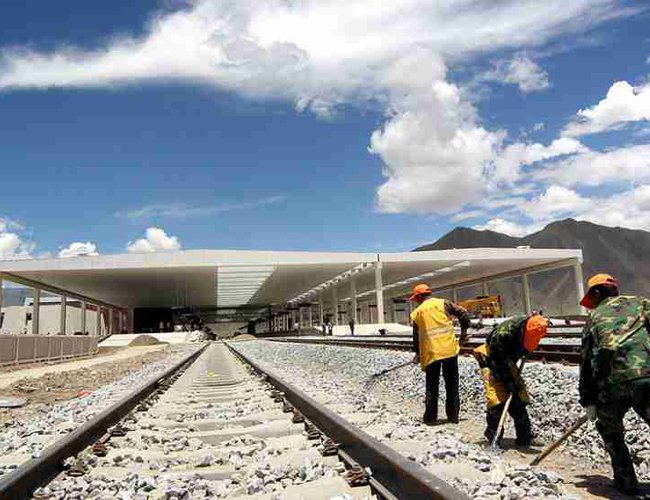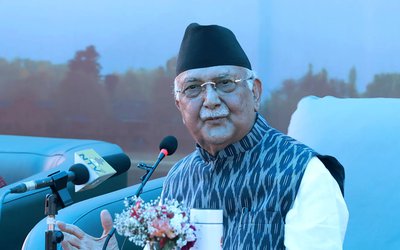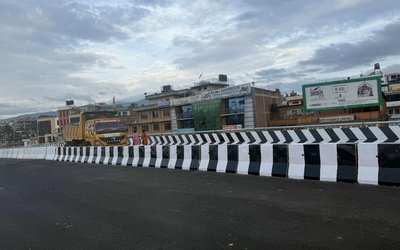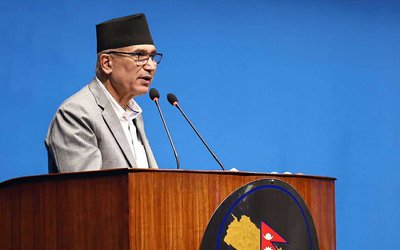
At the invitation of Chinese Premier Li Keqiang, Nepalese Prime Minister K.P. Sharma Oli is paying an official visit to China. During Oli's visit, cooperation on infrastructure projects like the railway line connecting Gyirong in Southwest China's Tibet Autonomous Region with the Nepali capital Kathmandu is expected to be discussed.
Since China extended its rail network to Xigaze, Tibet in 2014, Beijing has been working to further extend the railway line to the China-Nepal border port of Gyirong, a project that is expected to be completed in 2020. If a rail connection between Gyirong and Kathmandu can be achieved, the two countries can establish an integrated network of rail freight.
Nepal's new government holds a positive attitude toward the plan. Oli told the Global Times on Tuesday that the railway project is a priority for Nepal's partnership with China. "Our two countries are working seriously to establish cross-border railway connectivity," said Oli.
If all goes well, it won't take long to make the integrated rail network a reality, and the line is likely to be a game-changer in terms of trade, connectivity and economic integration in South Asia.
Sandwiched between China and India, Nepal has long been dependent on the latter for international trade because the inland Himalayan nation has no outlet to the sea. If China and Nepal are connected by rail, bilateral trade will increase, with the Himalayan nation getting the opportunity to dilute the influence of New Delhi. It is understandable that the rail line may arouse vigilance in India, but the project does not strategically target any third party, including India.
The rail line is just the first step to fulfill the wish to establish an integrated rail network among China, Nepal and India. If the three countries can be connected via cargo trains, which are faster than ships and cheaper than planes, India is likely to witness a surge in its exports of goods such as agricultural products to China.
India and Nepal have road links, but this is not enough to meet the demand for international freight. If India wants to extend its rail network to Nepalese cities, China will not be stingy in offering help.
An integrated rail network will be a key component of a trans-Himalayan economic corridor connecting China, Nepal and India. Rather than being wary of Nepal's increased cooperation with China, New Delhi's best choice is to push forward the trilateral economic corridor with closer cooperation.
Courtesy: Global Times
- Finance Minister Poudel Withdrwan Take And Pay Provision
- Jun 24, 2025
- Japan Hands Over Medical Equipment to Bayalpata Hospital in Achham District
- Jun 24, 2025
- Online Ministerial Information Sharing Meeting “Elevating the Ending Violence Against Children (EVAC) Agenda in South Asia”
- Jun 24, 2025
- Global IME Bank customers get up to 15 percent discount on services at IME Hospitality and Ela Hotel & Resort
- Jun 24, 2025
- Weather Forecast: Partly To Generally Cloudy With Very Heavy Rain Is Likely To Occur In Few Places Of Kathmandu Valley and Koshi Province
- Jun 23, 2025















